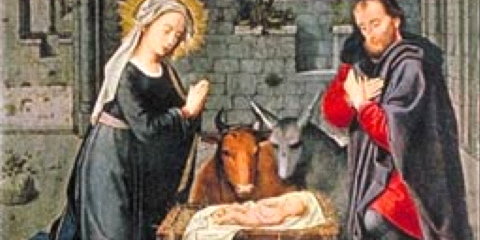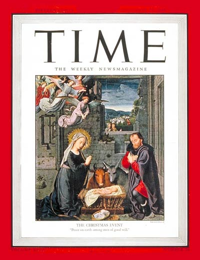- Articles
- Commonweal
- TIME – Reviews
- TIME – Articles
- TIME – Cover Stories
- TIME – Foreign News
- Life Magazine
- Harper’s: A Chain is as Strong as its Most Confused Link
- TIME – Religion
- New York Tribune
- TIME
- National Review
- Soviet Strategy in the Middle East
- The Coming Struggle for Outer Space
- The Left Understands the Left
- To Temporize Is Death
- Big Sister Is Watching You
- Springhead to Springhead
- Some Untimely Jottings
- RIP: Virginia Freedom
- A Reminder
- A Republican Looks At His Vote
- Some Westminster Notes
- Missiles, Brains and Mind
- The Hissiad: A Correction
- Foot in the Door
- Books
- Poetry
- Video
- About
- Disclaimer
- Case
- Articles on the Case
- Hiss Case Coverage: TIME 1948
- Hiss Case Coverage: TIME 1949
- Hiss Case Coverage: TIME 1950
- Hiss Case Coverage: TIME 1951
- Hiss Case Coverage: TIME 1952
- Trial by Typewriter
- I Was the Witness
- The Time News Quiz
- Another Witness
- Question of Security
- Fusilier
- Publican & Pharisee
- Recent & Readable
- Recent & Readable
- Kudos
- Letters – June 16, 1952
- Readable
- Letters – June 23, 1952
- Recent & Readable
- Recent & Readable
- Recent & Readable
- Nominee for Veep
- Recent and Readable
- Recent and Readable
- Democratic Nominee for President
- Recent & Readable
- Recent & Readable
- Fighting Quaker
- Recent & Readable
- Recent & Readable
- Recent & Readable
- Timely Saints
- Nixon on Communism
- People
- Who’s for Whom
- 1952 Bestsellers
- Letters – December 15, 1952
- Year in Books
- Man of Bretton Woods
- Hiss Case Coverage: TIME 1953
- Hiss Case Coverage: TIME 1954
- Hiss Case Coverage: TIME 1955
- Hiss Case Coverage: TIME 1956-1957
- Private
Religion: Christmas 1945

Monday, Dec. 24, 1945
Religion: Christmas 1945
(See Cover)
Peace and homecoming, peace and homecoming rang like the clangor of Christmas bells in the heart of nearly every American last week.
For most Americans, on the first Christmas without war since 1938, these two facts transcended all others: peace (at least, the cessation of major war) had come back to earth; millions of U.S. fighting men, now a peaceful army of longed-for occupation, were streaming back to their homes. As families were reunited, often after years of separation, it was small wonder if the Christmas desire to give turned, as a result of the famine of goods, into a frenzy to buy, if Christmas as a domestic holiday and a public manifestation was sometimes of staggering inconsequence.
As a religious holiday, Christmas 1945 had, at least in the secret mind of those who shared the Christian vision, a new solemnity. Well might they read with a new anguish of hope, a new resoluteness of faith, a new temper of charity, the age-old words—perhaps the most perfect ever uttered:
And there were in the same country shepherds abiding in the field, keeping watch over their flock by night.
And, lo, the angel of the Lord came upon them, and the glory of the Lord shone round about them, and they were sore afraid.
And the angel said unto them, fear not: for, behold, I bring you good tidings of great joy, which shall be to all people.
For unto you is born this day, in the city of David, a Saviour, which is Christ the Lord.
And this shall be a sign unto you: ye shall find the babe wrapped in swaddling clothes lying in a manger.
And suddenly there was with the angel a multitude of the heavenly host, praising God, and saying,
Glory to God in the highest, and on earth peace, good will toward men. 1
Christmas 1945 lay deep in the long shadow of eternity. Beside every U.S. celebrant of Christmas, there watched, like the shepherds, three presences: the war’s dead, the wretched and The Bomb. 2
The war’s dead included not only those who died that Christians might celebrate Christmas in peace and freedom. They also included the millions who died in concentration camps, the children who perished from exhaustion, cold and fear, in flight from battling armies or in air raids, the children who have died by thousands from hunger and cold in Europe and Asia this year.
The wretched included not only war’s fugitives, the millions of displaced persons drifting in hunger, cold and anxiety over the hard face of the world; and those others, allies and enemies, who had been shattered in life and soul by defeat in war —and some by victory. They also included the wretched who by reason of man’s nature and destiny are always among us. The hollow eyes of-the dead, who cannot speak, asked a question: What have you done? The beseeching eyes of the wretched, who cannot be heard, asked a question: What will you do?
The Bomb was itself a question. It was little to his credit that it stirred man’s ultimate despair more than all the rest of his calamitous handiwork because it seemed to transfer responsibility for his fate from God to man. Presumptuous man, who in all his pryings into matter below vision and into space beyond sight had never been able to answer the first question which the Voice from the Whirlwind put to Job: Where wast thou when I laid the foundations of the earth?
The practical aspects of these questions would be settled in time, in the world’s way, by able men, purposeful men, shrewd men, perhaps ruthless men, and always confused men. There would be Babels of planning and organization, pyramids of policy. But these would come to no more than all those that had gone before unless, as on this day of Nativity, 1945, man felt within himself a rebirth of what some have called “the Inner Light,” others “the Christ within.” They would fail like all the rest unless man achieved the ultimate humility and the power implied in one of the Bible’s most peremptory commandments:
Be still, and know that I am God. 3
Notes:
- Luke 2:8-14 – King James Bible.
The Vulgate Latin Bible finishes with et in terra pax in hominibus bonae voluntatis, which means something more like “and on earth, peace upon all men [people] of good will.” ↩
- “The Bomb” would prove a recurring fear of Chambers’s in his writings at National Review, including “The Coming Struggle for Outer Space.” ↩
- Psalms 46:10 – King James Bible ↩
One Response to Religion: Christmas 1945
Leave a Reply Cancel reply
This site uses Akismet to reduce spam. Learn how your comment data is processed.
Archives
Tags
Adolf Berle Alexander Ulanovsky Alger Hiss Arthur Koestler Atlas Shrugged Ayn Rand Benn Steil Cold Friday Cold War Communism Dwight Eisenhower FDR George W. Bush Ghosts on the Roof Harry Dexter White Harry Truman Hiss Case House Un-American Activities Committee HUAC Ignatz Reiss John Loomis Sherman John Maynard Keynes Joseph McCarthy Joseph Stalin Karl Marx Leon Trotsky Max Bedacht Middle East National Review Peter the Great Pumpkin Papers Ralph de Toledano Richard Nixon Ronald Reagan Sputnik TIME magazine Tony Judt Vladimir Lenin Walter Krivitsky Westminster Whittaker Chambers William F. Buckley William F. Buckley Jr. Winston Churchill YaltaArt Resources
- B&W Photos from Farm Security Administration-Office of War Information Collection
- Life of the People: Radical Impulse + Capital and Labor
- Art of Marxism
- Comrades in Art
- Graphic Witness
- Jacob Burck
- Hugo Gellert + Gellert Papers
- William Gropper
- Jan Matulka: Thomas McCormick Gallery + Global Modernist
- Esther Shemitz Chambers
- Armory Show 1913
Pages from old website
Official website of Whittaker Chambers ( >> more )
Spycraft
- China Reporting
- CIA
- CIA – Alger Hiss Case
- Cold War Files
- Cold War Studies (Harvard)
- Comintern Online
- Comintern Online – LOC
- CWIHP – Wilson Center
- David Moore – Critical Thinking and Intelligence Analysis
- DC Writers: WC Home
- Economist – Espionage
- Essays on Espionage
- FBI – Rogue DNS Checker
- House – Hearing 08/25/1948
- House – Hiss Subpoena
- InfoRapid: WC
- Max Bedacht
- New York Times – Espionage
- NSA – FOIA Request
- PBS NOVA – Secrets Lies and Atomic Spies
- Richard Sorge
- Secrecy News
- Sherman Kent – Collected Essays
- Spy Museum – SPY Blog
- Thomas Sakmyster – J Peters
- Top Secret America – Map
- UK National Archives
- Vassiliev Notebooks
- Venona Decrypts
- Washington Decoded
- Washington Post – Espionage
- Zee Maps
Libraries
- American Commissar by Sandor Voros
- American Mercury – John Land
- American Writers Museum
- Archive.org – HUAC
- Archive.org – Lazar home
- Archive.org – Lazar Report
- Archives.org: 1948 – Hearings
- Archives.org: 1950 – Sherman Lieber
- Archives.org: 1951 – Sorge
- Archives.org: Ernie Lazar FOIA
- Archives.org: Ernie Lazar FOIA Collection
- Bio – Bennet Cerf
- Bio – Zara Witkin
- Bloomsburg University: Counterattack
- Bloomsburg University: Radical Publications
- Brooklyn Eagle 1948
- Centre des Archives communistes en Belgique
- CIA FOIA WC
- Daily Worker (various)
- Daily Worker: Marxists.org
- DC – Kudos
- DC – ORCID
- DC – ResearcherID
- DC – ResearchGate
- DC – SCOPUS
- Digital Public Library of America
- Erwin Marquit – Memoir
- FBI
- FBI Vault – WC
- Google: Books – WC
- GPO – WC
- GW – ER Papers: WC
- GWU: Eleanor Roosevelt WC
- Harvard College Writing Center – WC Summary
- Hathi: WC
- IISH: Marx Engels Papers
- ILGWU archives
- Images AP
- Images Corbis
- Images Getty Time Life
- Images LOC
- INKOMKA Comintern Archives
- International Newsletter of Communist Studies (Germany)
- JJC/CUNY – HC
- Labor Archives in the United States and Canada
- Life – WC
- LOC LCCN WC
- NBC Learn K-12: Spy Trials
- New Masses (Archive.org) 1926–1933
- New Masses (Marxists.org) 1926–1933
- New Masses (USussex) 1926–1938
- NSA: FOIA requests
- Ollie Atkins Photos
- Open Library: WC
- People: WC
- Poetry: Defeat in the Village
- PSA Communism
- SLU Law: HCase
- SSRN: Berresford – Hiss Case
- SUFL: Collections
- Tamiment: Collections
- Truman Library – John S. Service
- Truman Library – Oral Histories
- Truman Library – WC
- UCBerk * eBooks
- UCBerk: China – Edgar Snow
- UCBerk: China – Grace Service
- UCBerk: China – Kataoka
- UCBerk: China – Mackinnon
- UCBerk: China – Owen Lattimore
- UCBerk: China – Stross
- UCBerk: France – Revolution
- UCBerk: Russia – Bread 1914-1921
- UCBerk: Russia – Comintern
- UCBerk: US – Conservatism WC
- UCBerk: US – Hollywood Weimar
- UCBerk: US – James Joyce
- UCBerk: US – Lawyers
- UCBerk: US – NY Intellectual
- UCBerk: US – Waterfronts
- UCLA Library Film & TV Archive
- UK National Archives: WC
- UMich: Salant Deception
- UPenn: US – Left Ephemera Collection
- UPitt: US – Harry Gannes
- USDOE
- USDoED
- USDOJ
- USDOS
- Wall St + Bolshevik Revolution – Anthony Sutton
- Wikipedia A-D
- WikiSearch WC
- WordPress themes – Anders Noren
- x FSearch – WC



[…] Religion: Christmas 1945 […]